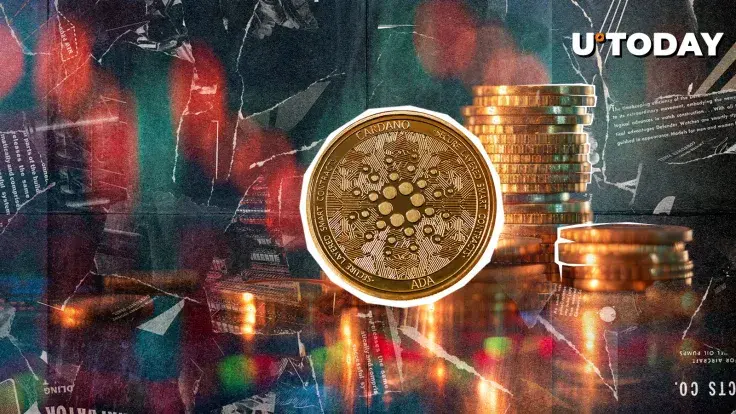
Disclaimer: The opinions expressed by our writers are their own and do not represent the views of U.Today. The financial and market information provided on U.Today is intended for informational purposes only. U.Today is not liable for any financial losses incurred while trading cryptocurrencies. Conduct your own research by contacting financial experts before making any investment decisions. We believe that all content is accurate as of the date of publication, but certain offers mentioned may no longer be available.
The Cardano (ADA) price is having a tough time keeping up after dropping below important technical markers, just days after the new privacy-focused sidechain Midnight was revealed.
The token closed below the lower Bollinger Band on the daily chart, a signal that usually implies increased downside risk. Selling volume has started to pick up again, with ADA falling 7.6% on the day and forming a bearish engulfing candle.
So, the short-term outlook is not doing the bulls any favors. ADA has been stuck below its 20-day moving average for almost a month, and that line — currently around $0.564 — has turned into solid resistance.

With the next support level at around $0.52, the market is now looking to see if that level can hold as pressure grows.
Is Midnight the "new Cardano?"
This dip is a bit of a bummer for Cardano right now, as it is trying to bring some fresh excitement through the Midnight sidechain. Midnight has a dual-token system built around NIGHT and DUST. One will be the governance and utility asset, and the other will be the gas token. The rollout includes a few phases that reward eligible users, and a mining-like system that increases access over time.
But even with appealing token mechanics and its cross-chain goals, the market seems more focused on what is coming next — and not in a good way.
It seems like the recent dip in ADA is already pricing in a potential wave of selling tied to the upcoming distribution. Traders might be getting ready for a typical "sell the news" situation, where token holders sell their ADA to claim new assets or protect against expected dilution.


 Arman Shirinyan
Arman Shirinyan Dan Burgin
Dan Burgin Alex Dovbnya
Alex Dovbnya Denys Serhiichuk
Denys Serhiichuk